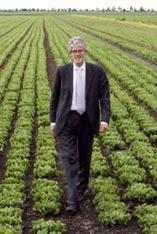
Responding to speculation in the trade last week, Dutch produce giant The Greenery has announced its intention to set up a new model for “co-operation” among the company, the co-operative and its members.
However, this does not include the establishment of a separate division for dealing with discounters, as reported elsewhere.
Tim Willaert, The Greenery’s marketing and communications officer, said: “The shifts in market conditions and the changing needs of customers and growers (or groups of growers) are the inspirations behind the company’s desire to accelerate the introduction of the new model…We are not setting up a discount division at the moment.
“What we are doing is looking at how we can manage certain product streams that go to discounters better.”
The Greenery believes its new approach will enhance its added-value strategy and also allow growers to define their own style of modern entrepreneurship within the co-operative.
Philip Smits, managing director, said: “By taking this step forward, we aim to intensify our relationship with preferred suppliers, thus strengthening our position in retail. Having growers as exclusive preferred suppliers means a stronger focus on such services as supply chain management, shorter supply chains and category management.”
The Greenery has already taken a number of steps towards introducing the new model, including the introduction of a transparent system of tariffs and levies and the reorganisation of its Sourcing NL department along product lines. The number of direct links between growers and their customers has also been ramped up recently.
Willaert said: “We have observed a number of developments among our customers and growers that influence the market in which we operate.
“On the one hand, customers have stronger preferences for co-operation in the supply chain and for standards of quality and food safety. On the other hand, professionalisation and the increasing scale of agriculture have led to a desire among growers to change how they define their role as entrepreneurs.”



